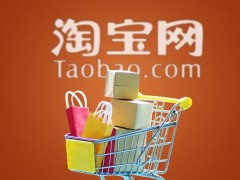What is the significance of export e-commerce?
出口跨境电商其实就是有专门的平台允许全球各个国家的商家入驻,将自己手里拥有的资源发布到平台,然后展示给全球买家,买家找到自己需要的商品之后下单发货。其模式和国内的电商平台在本质上基本一样。但是和国内电商平台相比,出口跨境电商面对的消费者更多、更广泛,并且在招商范围上是面向全球商家招商入驻。
出口跨境电商平台由于涉猎广,不同的地区有不同的电商平台,人们熟知的亚马逊,wish,沃尔玛等属于北美地区,而东南亚比较著名的就是shopee,日本的乐天商场等,不同的平台运营方式有很大差别,基本遵循的都是本地风土人情和消费习惯,能更好的融入本地市场。
此外,在人员任用方面, 国内电商平台要求相对会低一些,出口跨境电商要面对的是全球各个地区的消费者,这就对工作人员有一定的要求,语种繁多,平台也会有专门的客服小组帮助卖家了解客户需求。
Professional answer
Export cross-border e-commerce is actually a special platform that allows merchants from all over the world to settle in, publish their own resources on the platform, and then show them to global buyers. Buyers will place orders and ship them after finding the products they need. Its model is essentially the same as that of domestic e-commerce platforms. However, compared with domestic e-commerce platforms, export cross-border e-commerce faces more and wider consumers, and in terms of investment promotion, it is open to global merchants to settle in.
Due to the wide range of export cross-border e-commerce platforms, different regions have different e-commerce platforms. The well-known Amazon, wish, Walmart, etc. belong to North America, while the more famous ones in Southeast Asia are Shopee and Japan's Rakuten Mall. The operation methods of different platforms are very different. Basically, they all follow local customs and consumption habits, and can better integrate into the local market.
In addition, in terms of personnel appointment, the requirements of domestic e-commerce platforms are relatively lower. Export cross-border e-commerce has to face consumers from all over the world, which has certain requirements for staff, and there are many languages. The platform will also have a special customer service team to help sellers understand customer needs.
Similar Q&A
recommend I want to start my own business, how can I find a project?
E-c News Continuously pushing e-commerce knowledge to you








Latest Q&A More
-
Do I need a trademark to open a franchise store on Pinduoduo to sell books?
#Pinduoduo#
-
How to withdraw from a Pinduoduo store
#Pinduoduo#
-
How to withdraw from Pinduoduo merchants
#Pinduoduo#
-
How to pay fees when closing a Pinduoduo store
#Pinduoduo#
-
How to withdraw from Pinduoduo
#Pinduoduo#
-
Which store on Pinduoduo is authentic?
#Pinduoduo#
-
Which stores on Pinduoduo can buy genuine products?
#Pinduoduo#
-
How to check the store under Pinduoduo
#Pinduoduo#
-
How to receive Pinduoduo online game products
#Pinduoduo#
-
How to sell the electronic version on Pinduoduo
#Pinduoduo#
E-c News 2026-02-27 19:44:34

- African netizens use China Africa cross-border e-commerce platform for online shopping
- how is the new seller of cross-border e-commerce doing?
- how can cross-border e-commerce Amazon sell on Amazon platform without goods?
- Amazon store opening process and cost analysis!
- Amazon plans to expand its pharmacy business on a large scale and will add same day delivery service
